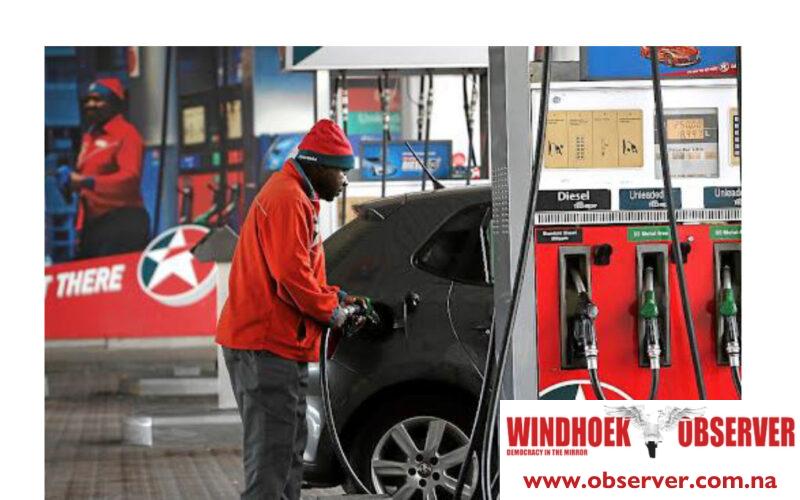Niël Terblanché
Consumers across Namibia will soon feel the impact of rising global oil prices when they go shopping for essential goods.
On Friday, the Ministry of Mines and Energy announced a sharp increase in fuel prices. The increase is set to take effect on Wednesday and will have an impact on the prices paid for food and other consumer goods.
In its announcement, the ministry attributed the price hike to continued global geopolitical tensions, OPEC+ production cuts, and currency exchange rate fluctuations, which have driven up the cost of importing crude oil.
The ministry said in its statement that crude oil prices have surged due to a combination of economic and political factors.
“The sanctions and geopolitical tensions affecting major oil-producing countries, coupled with OPEC+ production cuts, have led to a reduction in the global oil supply, contributing to higher fuel prices,” the statement read.
The ministry added that the increased demand for oil, particularly in the northern hemisphere during the winter season, has further exacerbated the situation.
According to the ministry, the Namibian Dollar experienced a depreciation against the United States Dollar, trading at an average of N$18.7468 per US$1.
The ministry noted that this 2.93% decline since the end of December 2024 has further inflated the cost of importing fuel.
The ministry reported under-recoveries of 82 cents per litre for petrol, 175 cents per litre for 50ppm diesel, and 166 cents per litre for 10ppm diesel.
“To mitigate the financial burden on consumers, the government opted for a partial increase rather than passing on the full cost to the public. As a result, petrol prices will rise by 42 cents per litre, while both diesel variants will see an increase of 120 cents per litre,” the ministry’s statement said.
As a result, the fuel price in Walvis Bay will be N$20.67 per litre for petrol, N$20.92 per litre for 50ppm diesel, and N$21.02 per litre for 10ppm diesel.
Fuel prices in other regions will be adjusted according to the distance from the country’s main port.
The ministry confirmed that the National Energy Fund would absorb the remaining under-recoveries to ease the financial strain on consumers.




